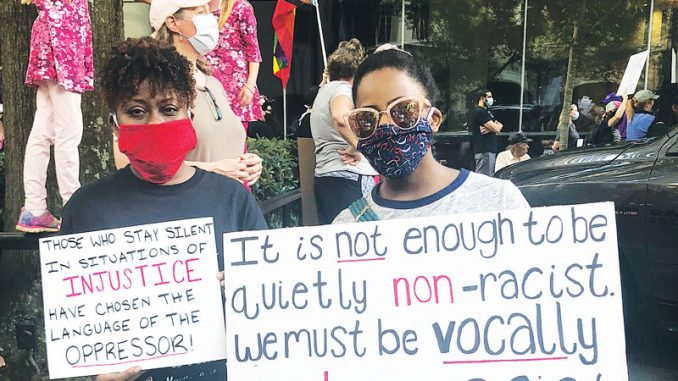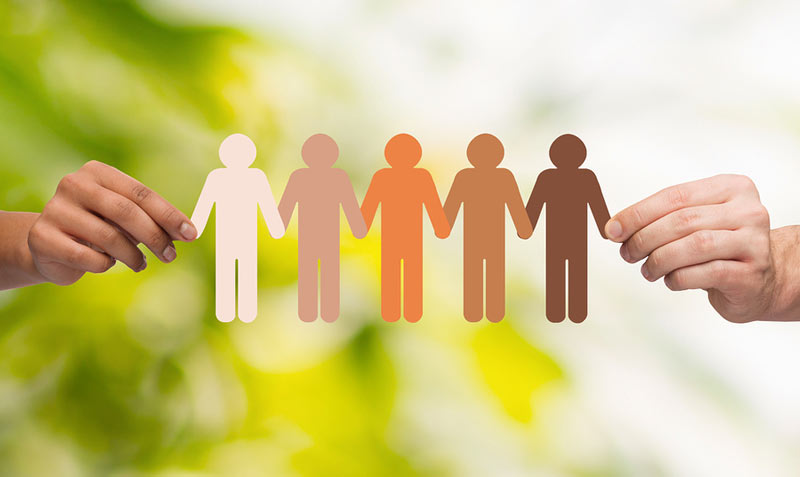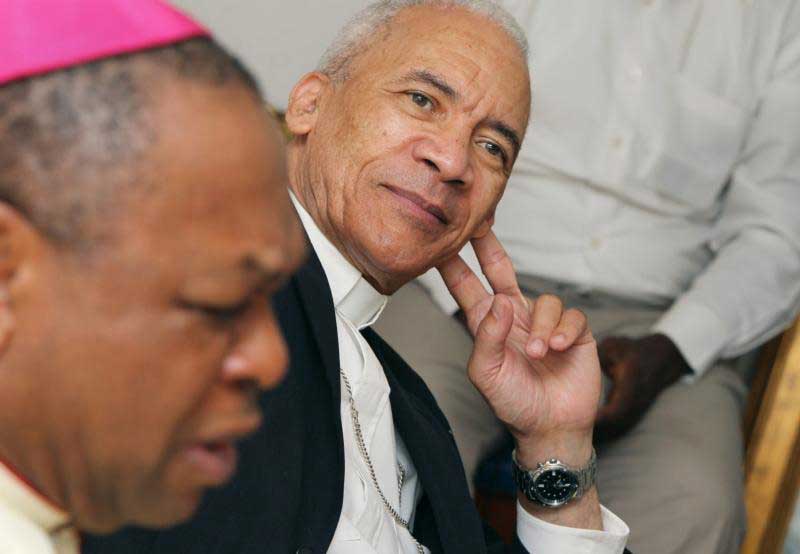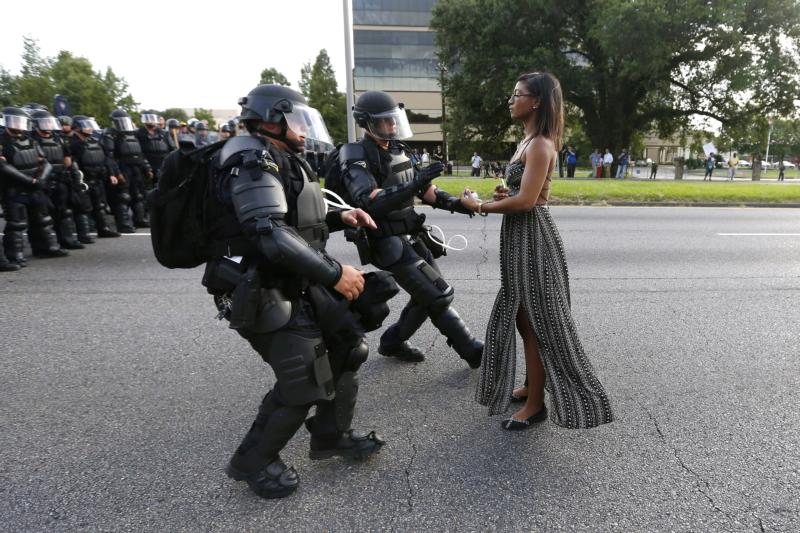
Black Lives Matter is the voice that has been dominating the news for the past few weeks. Not only on the matter of systemic racism, but on the disproportionate number of African Americans being affected by COVID-19.
African Americans are dying in alarming rates from both pandemics. This is due to health disparities, poverty and a disregard for black lives. Yes, “all lives matter,” however, the voices of the African American mothers, fathers, the faith community, and those who believe all life matters are joining together with hope that their peaceful demonstrations on “Black Lives Matter” will create change, that lives will be saved and that we find workable solutions for systemic racism in our country.
We all have just witnessed thousands of people around the world ignore the risk of contracting the coronavirus in order to protest against acts of police brutality in the taking of black lives in America. We also witnessed some people expressing themselves with a different agenda, promoting fear and hate by engaging in looting, rioting and other violent acts. This very diverse group of people perpetrated the intent of the peaceful demonstrators by showing us their hate and poverty as being their truth.
Did the “Black Lives Matter” peaceful demonstrations around the country make a difference? One of the immediate results of the protests was that Officer Derek Chauvin was arrested and murder charges were upgraded from third degree to second degree. The other three officers involved were also finally arrested and charged. Other changes included some police stations banning the choke hold.

Dozens of major corporations are beginning to reassess the presence of African Americans and other minorities on their boards and in high ranking positions. Some public statues that served as a reminder of the history of racism were moved legally and some physically destroyed illegally.
Overall, more people are now acknowledging that systemic racism is real and are ready to do something about it.
Although African Americans led many of the protests across our cities, the activists consisted of people from all backgrounds, and young adults were a significant presence. Young adults not only showed up but were the leaders in the movement. Seeing these men and women carrying signs that read “Being Black is not a Crime”; “I can’t breathe”; and “No Justice No Peace” is a message to all that our young adults are ready to take their place as leaders in our world and will no longer be silent to racism as it exists today.
Where do we go from here? How do we get more acceptance and involvement in ending systematic racism in our country? People have seen on social media the killing of young African American males and females by police officers for many years, so there was confusion from many Catholics who did not understand why the Black Lives Matter issue was not included in the Church’s pro-life movement in America.
It was comforting and a relief to many Catholics to read the multiple letters and statements from our pope, bishops, priests and other Church leaders, reminding the world that the unjust killing of African Americans is not only racist but a pro-life issue and against the teachings of the Church.
Over 400 years of slavery, lynching, and injustices to African Americans cannot be changed by protesting alone. The first step for making a difference is to understand what racism truly is through self-evaluation. Examine your thoughts and actions toward people who are different and work on true acceptance and respect for all life. This is for all people, including African Americans. Everyone has a little racism in them. We need to educate our children on the reality of racism today and that it is a sin. Parents, as the first educators, sometimes teach racism in the home. That is why our schools must make the bigger difference by introducing faith-based behavior and enabling our youth to choose their path wisely.
Today, one of the biggest challenges with our young people is teaching acceptance and love for one another during an age of social distancing. Will our African American kids be seen at school by others as COVID-19 infected because of reported statistics and health disparities? Are they already viewed as a danger to others?
These are the challenges our families, schools and churches must address. The first step is to begin the dialogue and teach children to love and have empathy for one another. We must show our children, especially our black children, that they are loved and no longer should be afraid. Through prayer and understanding, we can all make a difference.
The Diocese of Charleston’s Office of Ethnic Ministries will hold a series of online dialogues on race throughout the summer. Visit www.charlestoncatholic.org/ethnic- ministries to learn more.
By Kathleen Merritt, director of Ethnic Ministries for the Diocese of Charleston. Email her at kmerritt@charlestondiocese.org.



